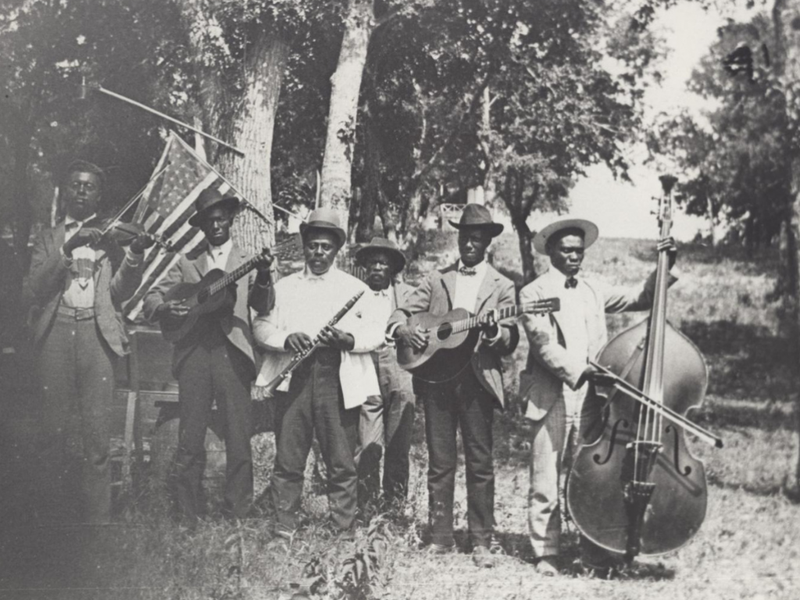
WoostChat.
News that they were freed reach Texas slaves in 1865, two and half years after President Abraham Lincoln issued his 1863 Emancipation Proclamation setting them free.
Juneteenth commemorates not only just this delayed news of freedom, but also to me the country’s ongoing cat and mouse game of offering freedom to black folks through laws and taking it away in practice.
Caleb Jackson, a legal counsel with the Campaign Legal Center, which advances democracy through law, points out the following:
“In the Reconstruction Era immediately following the U.S. Civil War, Black voters in the South were able to participate in federal elections in 1868 for the first time.
“During this period, these new voters received an umbrella to protect them from the rainstorm of racism. This newfound access led to a level of political representation that Black voters in the South have not experienced since.
“For example, between 1868 and 1877, Louisiana had a Black Governor and three Black Lieutenant Governors. From 1870 to 1876, Mississippi had a Black Lieutenant Governor and two Black U.S. Senators.
“However, the end of Reconstruction in 1877 also meant the end of protection for Black voters in the South and the beginning of racially fueled voter suppression. Unsurprisingly, there has not been a Black person elected to any statewide office in Mississippi or Louisiana since the Reconstruction era despite the fact that the two states have the highest percentage of African Americans in the country.”
Here is a list of congressional laws and amendments promising equal rights and justice for black people that are still mostly unfulfilled in practice.
| Amendment/Act | Public Law/ U.S. Code | Main Provisions |
|---|---|---|
| Thirteenth Amendment | P.L. 38-11; 13 Stat. 567; P.L. 38-52 13 Stat. 774–775 | Abolished slavery and involuntary servitude, except as punishment for a crime. Approved by the 38th Congress (1863–1865) as S.J. Res. 16; ratified by the states on December 6, 1865. |
| Civil Rights Act of 1866 | 14 Stat. 27–30 | Guaranteed the rights of all citizens to make and enforce contracts and to purchase, sell, or lease property. Passed by the 39th Congress (1865–1867) as S.R. 61. |
| Fourteenth Amendment | 14 Stat. 358–359 | Declared that all persons born or naturalized in the U.S. were citizens and that any state that denied or abridged the voting rights of males over the age of 21 would be subject to proportional reductions in its representation in the U.S. House of Representatives. Approved by the 39th Congress (1865–1867) as H.J. Res. 127; ratified by the states on July 9, 1868. |
| Fifteenth Amendment | P.L. 40-14; 15 Stat. 346 | Forbade any state to deprive a citizen of his vote because of race, color, or previous condition of servitude. Approved by the 40th Congress (1867–1869) as S.J. Res. 8; ratified by the states on February 3, 1870. |
| First Ku Klux Klan Act (Civil Rights Act of 1870) | 16 Stat. 140–146 | Prohibited discrimination in voter registration on the basis of race, color, or previous condition of servitude. Established penalties for interfering with a person’s right to vote. Gave federal courts the power to enforce the act and to employ the use of federal marshals and the army to uphold it. Passed by the 41st Congress (1869–1871) as H.R. 1293. |
| Second Ku Klux Klan Act (Civil Rights Act of 1871) | 16 Stat. 433–440 | Placed all elections in both the North and South under federal control. Allowed for the appointment of election supervisors by federal circuit judges. Authorized U.S. Marshals to employ deputies to maintain order at polling places. Passed by the 41st Congress (1869–1871) as H.R. 2634. |
| Third Ku Klux Klan Act (1871) | 17 Stat. 13–15 | Enforced the 14th Amendment by guaranteeing all citizens of the United States the rights afforded by the Constitution and provided legal protection under the law. Passed by the 42nd Congress (1871–1873) as H.R. 320. |
| Civil Rights Act of 1875 | 18 Stat 335–337 | Barred discrimination in public accommodations and on public conveyances on land and water. Prohibited exclusion of African Americans from jury duty. Passed by the 43rd Congress (1873–1875) as H.R. 796. |
| Civil Rights Act of 1957 | P.L. 85–315; 71 Stat. 634 | Created the six-member Commission on Civil Rights and established the Civil Rights Division in the U.S. Department of Justice. Authorized the U.S. Attorney General to seek court injunctions against deprivation and obstruction of voting rights by state officials. Passed by the 85th Congress (1957–1959) as H.R. 6127. |
| Civil Rights Act of 1960 | P.L. 86–449; 74 Stat. 86 | Expanded the enforcement powers of the Civil Rights Act of 1957 and introduced criminal penalties for obstructing the implementation of federal court orders. Extended the Civil Rights Commission for two years. Required that voting and registration records for federal elections be preserved. Passed by the 86th Congress (1959–1961) as H.R. 8601. |
| Civil Rights Act of 1964 | P.L. 88–352; 78 Stat. 241 | Prohibited discrimination in public accommodations, facilities, and schools. Outlawed discrimination in federally funded projects. Created the Equal Employment Opportunity Commission to monitor employment discrimination in public and private sectors. Provided additional capacities to enforce voting rights. Extended the Civil Rights Commission for four years. Passed by the 88th Congress (1963–1965) as H.R. 7152. |
| Voting Rights Act of 1965 | P.L. 89–110; 79 Stat. 437 | Suspended the use of literacy tests and voter disqualification devices for five years. Authorized the use of federal examiners to supervise voter registration in states that used tests or in which less than half the voting-eligible residents registered or voted. Directed the U.S. Attorney General to institute proceedings against use of poll taxes. Provided criminal penalties for individuals who violated the act. Passed by the 89th Congress (1965–1967) as S. 1564. |
| Civil Rights Act of 1968 (Fair Housing Act) | P.L. 90–284; 82 Stat. 73 | Prohibited discrimination in the sale or rental of approximately 80 percent of the housing in the U.S. Prohibited state governments and Native-American tribal governments from violating the constitutional rights of Native Americans. Passed by the 90th Congress (1967–1969) as H.R. 2516. |
| Voting Rights Act Amendments of 1970 | P.L. 91–285; 84 Stat. 314 | Extended the provisions of the Voting Rights Act of 1965 for five years. Made the act applicable to areas where less than 50 percent of the eligible voting age population was registered as of November 1968. Passed by the 91st Congress (1969–1971) as H.R. 4249. |
| Voting Rights Act Amendments of 1975 | P.L. 94–73; 89 Stat. 400 | Extended the provisions of the Voting Rights Act of 1965 for seven years. Established coverage for other minority groups including Native Americans, Hispanic Americans, and Asian Americans. Permanently banned literacy tests. Passed by the 94th Congress (1975–1977) as H.R. 6219. |
| Voting Rights Act Amendments of 1982 | P.L. 97–205; 96 Stat. 131 | Extended for 25 years the provisions of the Voting Rights Act of 1965. Allowed jurisdictions that could provide evidence of maintaining a clean voting rights record for at least 10 years, to avoid preclearance coverage (the requirement of federal approval of any change to local or state voting laws). Provided for aid and instruction to disabled or illiterate voters. Provided for bilingual election materials in jurisdictions with large minority populations. Passed by the 97th Congress (1981–1983) as H.R. 3112. |
| Civil Rights Restoration Act of 1987 | P.L. 100–259; 102 Stat. 28 | Established that antidiscrimination laws are applicable to an entire organization if any part of the organization receives federal funds. Passed by the 100th Congress (1987–1989) as S. 557. |
| Fair Housing Act Amendments of 1988 | P.L. 100–430; 102 Stat. 1619 | Strengthened the powers of enforcement granted to the Housing and Urban Development Department in the 1968 Fair Housing Act. Passed by the 100th Congress (1987–1989) as H.R. 1158. |
| Civil Rights Act of 1991 | P.L. 102–166; 105 Stat. 1071 | Reversed nine U.S. Supreme Court decisions (rendered between 1986 and 1991) that had raised the bar for workers who alleged job discrimination. Provided for plaintiffs to receive monetary damages in cases of harassment or discrimination based on sex, religion, or disability. Passed by the 102nd Congress (1991–1993) as S. 1745. |
| Voting Rights Act of 2006 | P.L. 109–246; 120 Stat. 577 | Extended the provisions of the Voting Rights Act of 1965 for 25 years. Extended the bilingual election requirements through August 5, 2032. Directed the U.S. Comptroller General to study and report to Congress on the implementation, effectiveness, and efficiency of bilingual voting materials requirements. Passed by the 109th Congress (2005–2007) as H.R. 9. |
